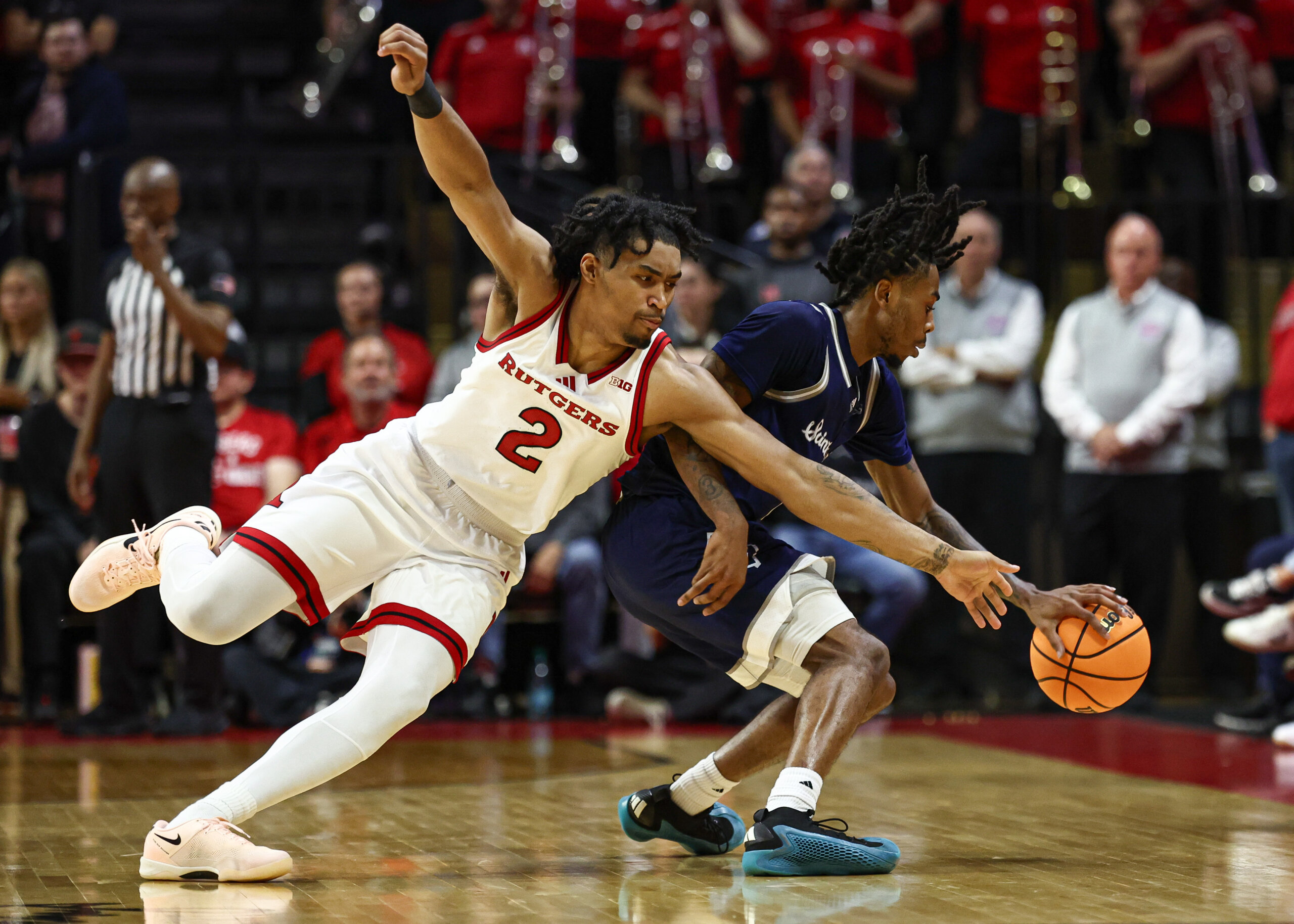
- A piece of New Jersey legislation to prohibit college player prop bets advanced today out of committee
- Bill A4905 advanced out of the Assembly tourism, gaming and the arts committee with a favorable vote
- Several states recently have prohibited these betting markets after a request from NCAA President Charlie Baker
New Jersey lawmakers have taken another step towards banning college player prop bets in the Garden State.
The member of the New Jersey Assembly tourism, gaming and the arts committee gave bill A4905 a favorable vote of 5-0 this morning, moving the piece of legislation out of committee and closer towards potential legalization.
If approved by the Assembly and Senate, New Jersey would become the latest state in the country to ban individual college player prop bets after a request from NCAA President Charlie Baker.
Regulated New Jersey Betting Potentially Prohibiting Props
The bill was introduced by Assemblyman Sterley S. Stanley (D-18) in October.
According to the legislation, the new law would require the following:
“This bill prohibits sports wagering licensees in this state from offering or accepting wagers on player-specific proposition bets on collegiate sports or athletic events.”
Sen. Kristin M. Corrado (R-40) introduced S3080, the bill’s twin counterpart in the Senate, this past April. The Senate bill is currently awaiting a hearing in the state government, wagering, tourism and historic preservation committee.
After she introduced the legislation, Corrado said she hoped the bill would increase player safety and reduce harassment stemming from sports bets.
“Proposition bets have led to a rise in the harassment of student-athletes and have threatened the integrity of college sports,” Corrado said. “I have heard about many individuals who have been the victim of online harassment because they didn’t perform to the expectation of a bettor who made a side wager. This legislation will ban player-specific prop betting in New Jersey, which will help curb that appalling behavior, and make college athletic events safer for all participants.”
Brandt Iden, Vice President of Government Affairs for Fanatics Betting & Gaming, told Sports Betting Dime that this bill will only punish consumers and fans by forcing them into the regulated black market to place these types of prop bets.
The NCAA, he said, also continues to push this policy with mixed results.
“Generally, I think regulators and law makers understand that this policy really doesn’t help with the issue they’re trying to solve for player harassment. We, as the industry, are in lockstep with the NCAA. We must work harder to address instances where unruly ignorant spectators with access to the internet bully our amazing student athletes. Unfortunately, this policy doesn’t help with that, it just simply punishes all consumers and fans, by forcing them into the unregulated black market to place these types of wagers,” he said.
States Banning College Player Prop Bets
New Jersey is the latest state to evaluate a ban for collegiate player prop bets after Baker urged state gaming regulators to consider such a ban.
A New Jersey Division of Gaming Enforcement spokesperson told Sports Betting Dime back in April that the regulatory body would consider a prohibition on individual college player prop bets if the NCAA reached out and made an official request to do so. The NCAA has yet to officially make the request, but may not have to if this Senate bill gains momentum.
Baker and the NCAA started their push to ban player props on individual college athletes earlier this year as a way to protect student-athletes from harassment stemming from bettors wagering on collegiate prop bets. Baker said the NCAA hopes to institute a country-wide ban on college player prop bets to “protect student-athletes and to protect the integrity of the game.”
Louisiana, Ohio, Vermont, and Maryland have all taken steps in the last two months to limit the college player prop bets.
In a recent development, a bill has been introduced in the New Jersey Legislature that aims to prohibit college player proposition bets. This move comes as a response to concerns about the potential impact of such bets on the integrity of college sports.
The bill, which was introduced by Assemblyman Ralph Caputo, seeks to amend the state’s existing sports betting laws to explicitly prohibit bets on individual college players. Currently, New Jersey allows sports betting on professional and collegiate sports, but there are no specific restrictions on bets involving individual players.
Supporters of the bill argue that allowing bets on college players could open the door to potential corruption and manipulation of games. They point to recent scandals in college sports, such as the FBI investigation into bribery and corruption in college basketball, as evidence of the risks involved.
Opponents of the bill, however, argue that prohibiting bets on college players would be an overreach and could hurt the state’s sports betting industry. They argue that there are already regulations in place to prevent match-fixing and other forms of corruption in sports, and that banning certain types of bets would be unnecessary.
The bill is currently being reviewed by the New Jersey Legislature, and it remains to be seen whether it will be passed into law. In the meantime, stakeholders on both sides of the issue continue to debate the potential impact of prohibiting college player proposition bets.
Overall, the advancement of this bill in the New Jersey Legislature highlights the ongoing debate over the regulation of sports betting and the need to balance consumer interests with concerns about the integrity of sports. As the issue continues to evolve, it will be important for lawmakers to carefully consider the potential consequences of their decisions and work towards finding a solution that protects both the interests of bettors and the integrity of college sports.